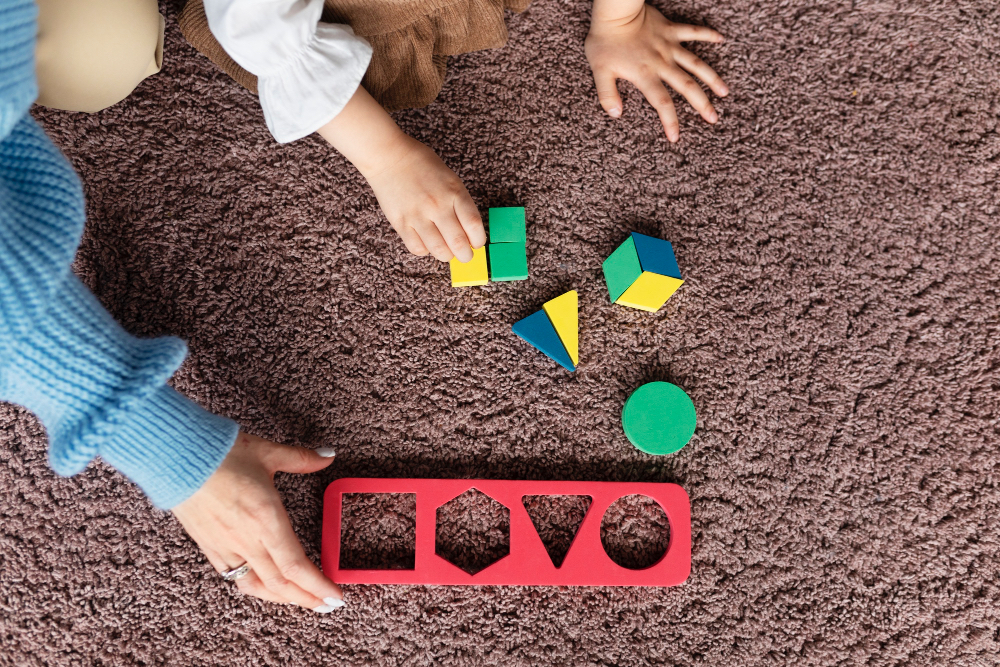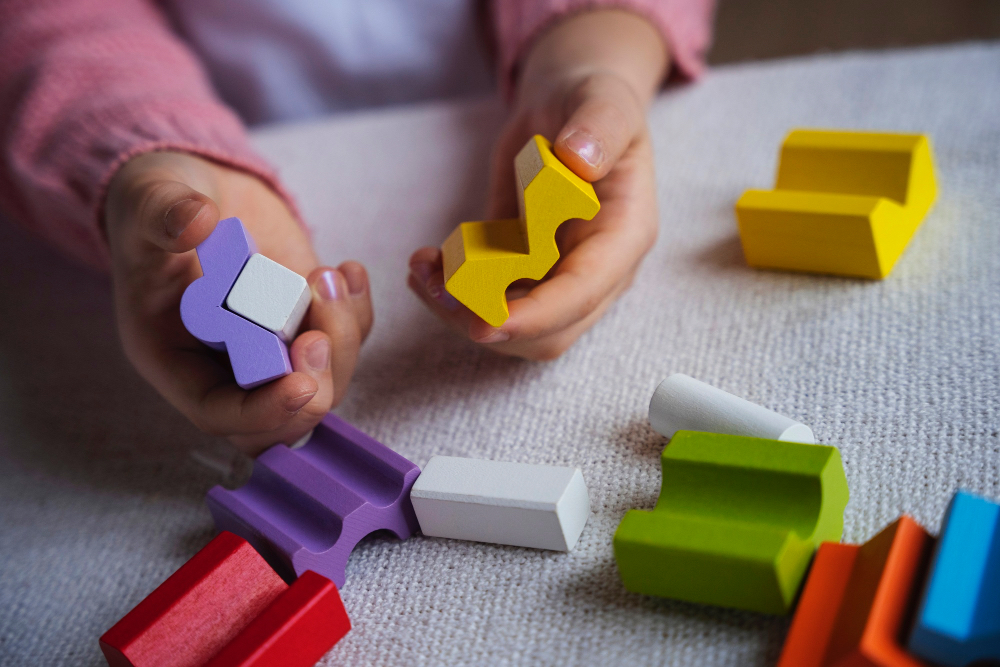The benefits of sensory play go beyond just having fun. Sensory play plays a crucial role in early childhood development by engaging a child’s senses—touch, smell, taste, sight, and sound. These activities support brain development, build motor skills, and enhance emotional regulation. In this article, we’ll explore the many benefits of sensory play and how you can incorporate it into your child’s routine.
1. How Sensory Play Enhances Cognitive Development: Exploring the Benefits
Sensory play supports brain development by encouraging problem-solving, critical thinking, and language skills.
- Cause and Effect: Activities like pouring water or building with blocks help children understand cause-and-effect relationships.
- Language Skills: As children explore textures or shapes, describing their experiences boosts vocabulary and communication.
- Pattern Recognition: Sorting objects by size, color, or texture introduces concepts like categorization and comparison.
2. Physical Benefits of Sensory Play for Kids
Sensory play helps refine both fine and gross motor skills, which are crucial for physical development.
- Fine Motor Skills: Activities like threading beads, playing with clay, or pinching sand develop the small muscles in the hands and fingers.
- Gross Motor Skills: Larger movements, such as jumping on a sensory mat or playing in a ball pit, enhance coordination and body awareness.
3. Fostering Creativity Through Sensory Play: Key Benefits
Sensory play provides an open-ended platform for children to express themselves and think creatively.
- Role-Playing: Using sand, water, or playdough, children can create worlds, animals, or objects, sparking their imagination.
- Artistic Expression: Sensory materials like paint, slime, or chalk encourage artistic exploration without rules or limits.
4. The Emotional Benefits of Sensory Play for Children
Sensory play can help children learn to manage their emotions and reduce stress.
- Calming Activities: Playing with water, sand, or slime provides a soothing experience, helping children regulate anxiety or frustration.
- Self-Awareness: By focusing on sensory experiences, children learn to recognize and respond to their emotional states.
5. Encourages Social Skills
Sensory play often involves interaction with peers, fostering collaboration and communication.
- Group Activities: Sharing sensory bins or playing in a sandbox encourages teamwork and turn-taking.
- Empathy Development: Working with others helps children understand different perspectives and feelings.
6. Introduces STEM Concepts
Sensory play lays the foundation for early science, technology, engineering, and math (STEM) skills.
- Scientific Exploration: Activities like mixing colors, dissolving salt, or observing the properties of objects introduce basic scientific principles.
- Math Concepts: Sorting, measuring, and counting during sensory play help develop foundational math skills.
Incorporating Sensory Play: Maximize Its Benefits at Home
Creating sensory play opportunities doesn’t require expensive toys or materials. Simple household items can offer rich sensory experiences.
- Sensory Bins: Fill a container with items like rice, beans, or pasta, and include small toys or scoops for exploration.
- Nature Play: Collect leaves, rocks, or flowers during outdoor play for a hands-on nature experience.
- Water Play: Provide cups, funnels, or sponges for simple water-based sensory activities.
Conclusion:
Sensory play is a powerful tool for early childhood development, offering benefits that span cognitive, physical, social, and emotional growth. By incorporating sensory activities into your child’s routine, you can nurture their curiosity, creativity, and learning in engaging and meaningful ways. Whether through structured activities or unstructured exploration, sensory play provides endless opportunities for growth and discovery.



